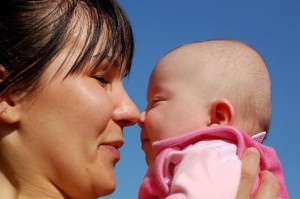How do the brains of children and adults respond to experience?
Experience-dependent plasticity occurs in people of all ages, from children to the elderly. Because the brain doesn’t fully develop its network of connections until after adolescence, however, plastic changes have more of an impact at an earlier age than later.1 That’s why it’s easier to learn to speak a language, play the piano, or play sports when young than when older. We can still learn these things when we’re older, but it takes a lot more effort and time.
in people of all ages, from children to the elderly. Because the brain doesn’t fully develop its network of connections until after adolescence, however, plastic changes have more of an impact at an earlier age than later.1 That’s why it’s easier to learn to speak a language, play the piano, or play sports when young than when older. We can still learn these things when we’re older, but it takes a lot more effort and time.
As noted in the Developing Brain section, some behaviors and brain processing have critical periods of development when the brain is exceptionally sensitive to experience. For example, a classic early experiment on cats showed that if the animals were not raised in an environment with horizontal lines, visual neurons that would normally be active upon presentation of this stimulus literally could not “see” horizontal lines when the cats were adults!
| References: |
|

